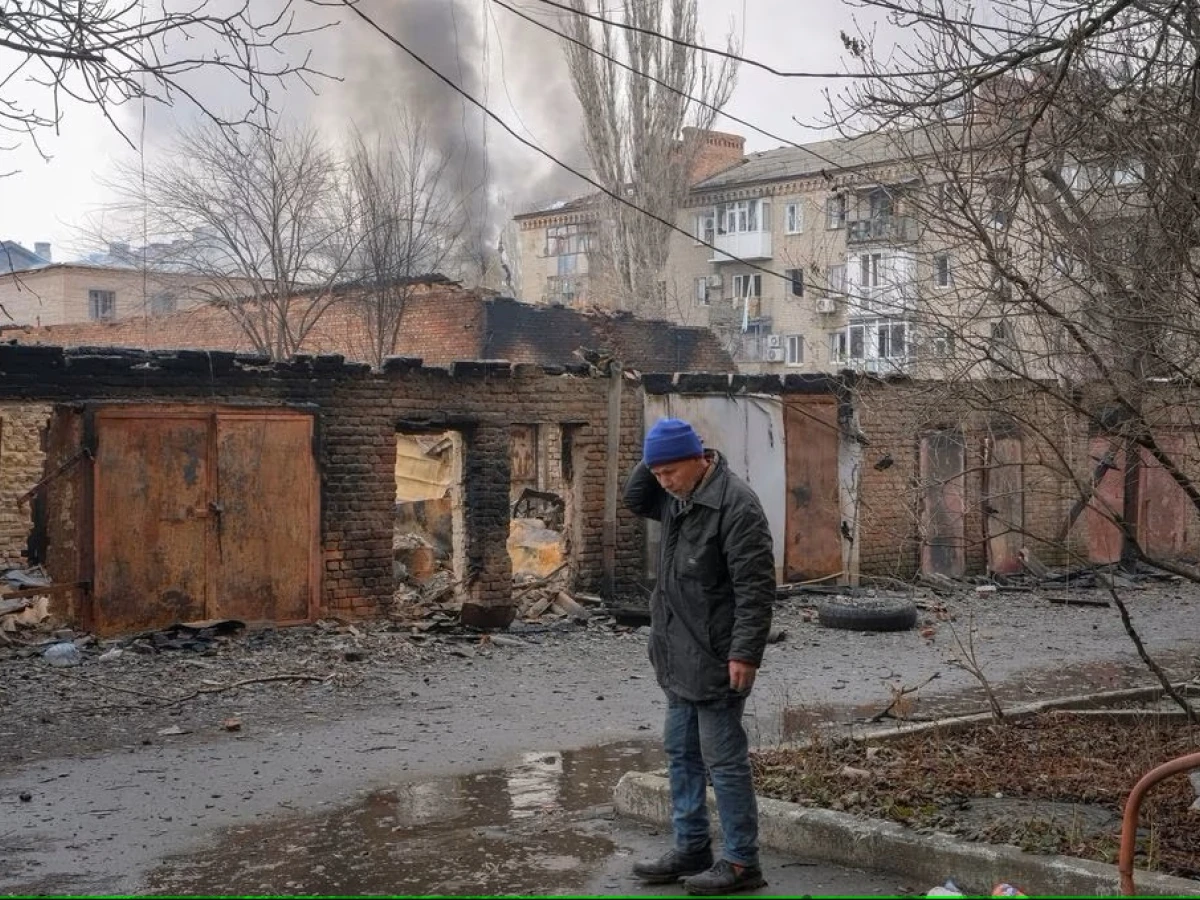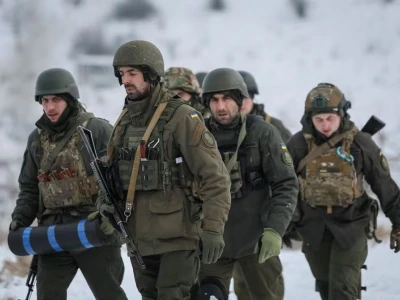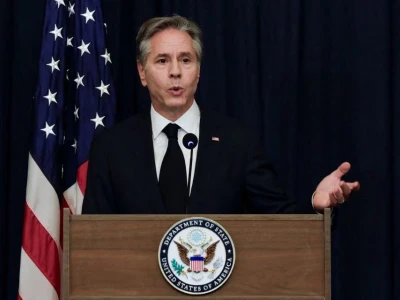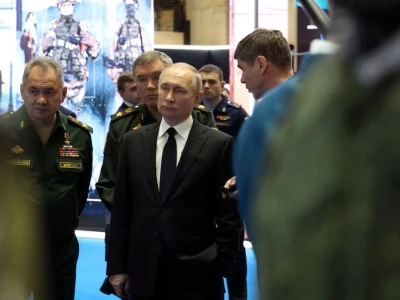
Russians tighten noose on Ukraine's Bakhmut, Putin warns of Western espionage
Russia, its forces replenished with hundreds of thousands of conscripts, has intensified its attacks all along the eastern front.
KYIV, Feb 28 (Reuters) - Russian forces on Tuesday pressed forward their weeks-long drive to encircle and capture the eastern Ukrainian city of Bakhmut, where the commander of Ukraine's ground forces described the situation as "extremely tense".
Taking Bakhmut, the scene of some of the war's bloodiest battles, would be Russia's first major prize in more than six months and open the way to seizing the last remaining urban centres in the Donetsk region, one of four Moscow claims to have annexed in its "special military operation" in Ukraine.
Russian President Vladimir Putin instructed the FSB security service on Tuesday to bolster security in the four regions - currently only partially controlled by his forces - and also to counter what he described as growing espionage and sabotage operations against Russia by Ukraine and the West.
He was speaking after a Russian regional governor said a drone had crashed near a natural gas distribution station on Tuesday in an apparent failed attack near the town of Kolomna, just 110 km (68 miles) southeast of Moscow.
Ukraine does not publicly claim responsibility for attacks inside Russia. If it was behind the Kolomna incident, it would be its closest attempted drone strike to the Russian capital since Russia invaded Ukraine just over a year ago.
Earlier, Russia's defence ministry also accused Ukraine of launching two attempted drone attacks against two southern Russian regions overnight but said they caused no damage.
'CITY IS ON FIRE'
Around Bakhmut, Russian troops, including mercenary fighters from the Wagner Group, are trying to cut the Ukrainian defenders' supply lines and force them to surrender or withdraw.
"Despite significant losses, the enemy threw in the most prepared assault units of Wagner, who are trying to break through the defences of our troops and surround the city," Ukraine's Colonel General Oleksandr Syrskyi said in a statement.
An unnamed soldier from Ukraine's 93rd Separate Mechanised Brigade, speaking on the Telegram messaging app as explosions boomed in the background, struck a defiant note: "February 28, the town of Bakhmut. The city is on fire, the enemy is pressing. Everything will be Ukraine..."
Russia's state-run RIA news agency released a video clip it said showed Russian Su-25 fighter jets roaring over Bakhmut. "We are glad they are ours," says a man in the clip identified as a Wagner fighter, adding the jets helped them "psychologically".
Ukraine's military said Russia was shelling settlements around Bakhmut, which had a pre-war population of around 70,000 but now lies in ruins after months of intense trench warfare.
"Over the past day, our soldiers repelled more than 60 enemy attacks," the military said early on Tuesday, including on the villages of Yadhidne and Berkhivka just north of Bakhmut.
A Reuters reporter who visited the area on Monday said he saw no sign of Ukrainian forces withdrawing and that reinforcements were arriving despite constant Russian shelling.
Ukraine's eastern front line resembles "a grinding slog" and Russia is not likely to be able to make significant territorial gains in the near term, the U.S. undersecretary of state for defense policy, Colin Kahl, said on Tuesday.
Ukrainian soldiers in the Donetsk region hunkered in muddy trenches after warmer weather thawed out the frozen ground.
"Both sides stay in their positions, because as you see, spring means mud. Thus, it is impossible to move forward," said Mykola, 59, commander of a Ukrainian front-line rocket launcher battery, watching a tablet screen for coordinates to fire.
The spring thaw has a history of ruining plans by armies to attack across Ukraine and western Russia, turning roads into rivers and fields into quagmires.
Russia, its forces replenished with hundreds of thousands of conscripts, has intensified its attacks all along the eastern front but its assaults have come at a high cost, says Ukraine, which is expected soon to launch its own counter-offensive.
Kremlin spokesman Dmitry Peskov repeated Moscow's stance that it is open to peace negotiations but Kyiv and its Western allies must accept Russia's annexation of four Ukrainian regions - Donetsk, Luhansk, Kherson and Zaporizhzhia - after referendums last September Kyiv and the West say were illegal shams.
"The constitution of the Russian Federation exists, and cannot be ignored. Russia will never be able to compromise on this, these are important realities," Peskov told reporters.
Despite failing to take Kyiv early in the war and despite its many battlefield setbacks, Russia still controls about a fifth of Ukrainian territory. Kyiv has so far ruled out talks with Moscow and has demanded that Russian troops withdraw to Ukraine's borders in 1991 - the year the Soviet Union collapsed.
TOP ICC PROSECUTOR VISITS
Moscow has also waged a campaign of missile and drone attacks on Ukrainian energy and other infrastructure far from front lines that has killed hundreds of civilians and left millions with no electricity or water.
Those attacks - which Russia says are legitimate strikes meant to weaken the enemy's military but Ukraine casts as war crimes against civilians - were the subject of a visit to Ukraine on Tuesday by the International Criminal Court's top prosecutor, Karim Khan.
"Generally we see clearly a pattern, I think, in terms of the number, scale and breadth of attacks against the power grids of Ukraine and we need to look at why that's taking place; are they legitimate targets or not?" Khan told reporters in the Kyiv satellite town of Vyshhorod, where eight civilians died when a missile landed next to an apartment block in late November.
It remains unclear whether the missile was aimed at a power installation nearby and missed its target.




